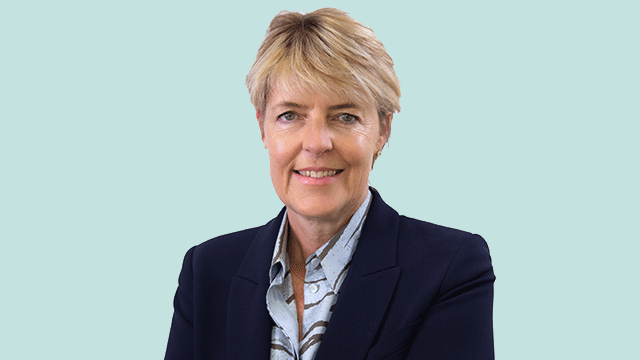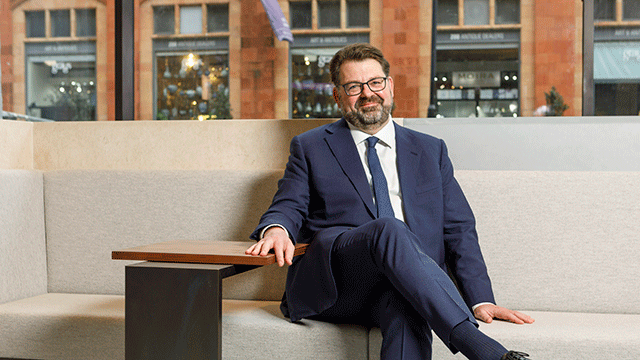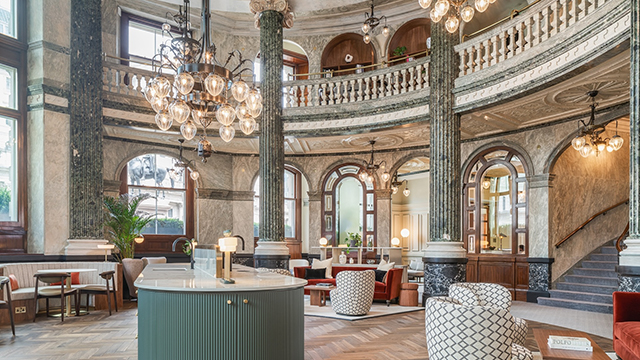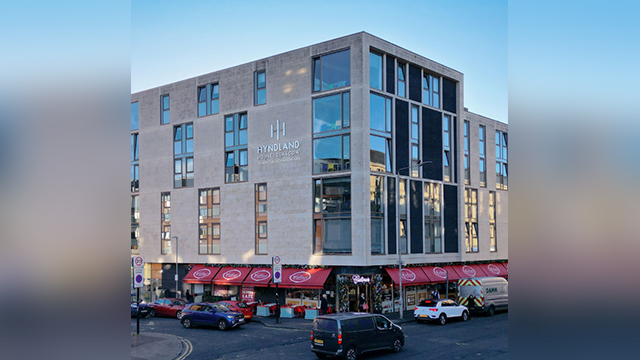Scotts’ frugal business tactics have worked in the firm’s first five years. But, as Helen Osborne reports, its directors believe they can afford to be bolder
Malcolm Scott, founder of Hull-based agency Scotts, is a straight shooter. He has never used a business plan. He has always kept within budget and stayed out of debt. His attitude is devoid of extravagance. And he and partner Chris Mason are open about the way they run their enterprise.
“We’ve been able to do without a business plan so far,” says Scott. “It has stood us in good stead. We haven’t been prejudiced by a strategy. We’ve been frugal to the point of not allowing any budget for marketing.”
It seems a sensible attitude given Hull’s less-than-dynamic property market. Instead, Scotts has focused on getting the job done. “If it’s not broken, don’t fix it,” says Mason.
But now that the firm has become established, should it adopt more sophisticated marketing tactics?
“We could promote ourselves a bit using our front window in a more consistent way,” says Scott (see box opposite).
But although Scott and Mason recognise the need for marketing, they are not actively implementing a policy.
Scott argues that it is a question of balance between getting the job done and finding time and resources to invest in marketing. He says: “We need expertise to help transfer our thoughts to paper and our website. Because of our history, we are very hands-on.”
Although there is no marketing budget as such, finance is always somehow made available for appropriate initiatives. “We don’t have a budget for anything!” admits Scott. “There is no big-business financial planning.”
Naturally conservative
So is it really a question of “if it’s not broken, don’t fix it?” or is Scotts simply afraid of experimenting?
“It’s a result of being secure in the way we operate,” Scott says. “We’ve never had an overdraft. It has always worked out that way. We’re of a large enough scale so that if one sector is busy, another will be quiet. Over the years, there has been a gap between income and expenditure. We’re naturally conservative.”
Do they not have any aspiration to own flashy cars, like so many agents? It appears not. “Security is important,” counters Scott. “This might stem from the insecurity we faced back when we started.”
Scott himself has plenty of experience of insecurity: he was made redundant from Prudential Commercial Property Services in 1990 before going it alone.
After some prompting, he starts to warm to the idea of developing the business a little more. He says approaches could involve extending the business geographically and expanding its range of specialisms.
“We have a non-prescribed way of expanding and while we want to be healthily involved with people, we can’t act for everyone on everything. We’re looking at diversifying into associated businesses.”
Scotts already has a second office in fishing port Grimsby. As well as spreading his wings geographically, Scott would consider a more imaginative association with a complementary business, for example with an firm of architects, or a planning specialist.
Where does Scotts need to improve? “We’re not projecting practice capabilities well enough,” Scott says.
“It has taken a long time to become established. It has taken a good five years of investment in Grimsby, and incremental growth in Hull. You couldn’t establish yourself here overnight.”
|
Hull city centre in fashion |
|
The current fashion for city-centre living has finally reached the Hull market. Scotts’ founder Malcolm Scott is in the process of setting up a residential department that will be ready in the next few months. The business is already involved in several of the city-living schemes, which include the Queen’s House development and Caddick’s City Exchange. Scott thinks the success of city living depends on the progress made by the city as a whole. But while the sector grows, his business is in a position to support it, he believes. The residential department will remain less than 15% of the business, but Scott explains: “We need to adapt our services to meet changing wealth.” He says: “We get the ripples in Hull. It’s a diverse economy with big household names. There is an inherent security that smaller practices can enjoy in a place where larger practices cannot justify setting up.” |
|
The facts |
|
Turnover 2002 £774,401 |
|
Projections for this year £750,000. General trend over the years has been upward with predictable turnover. |
|
Staff 20 over two offices |
|
Location Offices in Grimsby and Hull |
|
Plans To set up a residential department and branch out geographically. To increase its range of services. |
|
Internal changes While Scotts forges ahead plan-free, the only weakness lies in its lack of initiative in some areas, particularly marketing. |
|
Founder Malcolm Scott says: “We’re not working to full capacity on our marketing.” Scott is keen to relinquish some of his role as practice administrator, employing more finance and accounting assistants. |
|
What should Scotts’ marketing efforts achieve? |
|
EG columnist and marketing adviser Kim Tasso says: “Marketing in a small business is often undertaken by the owners but they do not usually call it ‘marketing’. They just naturally do the essential elements on a day-to-day basis, such as raise the firm’s profile in the right target market, keep in touch with their existing clients and develop their interests, generate relationships with and procure work from new clients, and develop new services and markets for the future.” “As a starting point, Scotts should ensure that its marketing database is fully up to date with information about all its existing clients, key referrers of work and target clients. Then they should invest in modest programmes to keep existing clients loyal to the firm – market updates, opportunities to meet and exchange views, cross-selling other services and so on. This effort should then be extended to those who refer work to the business and to those from whom it hopes to win future business. “I agree with the philosophy ‘If it’s not broken, don’t fix it’ but wonder why are they thinking about marketing now? Spending some time trying to define what you want your marketing to achieve, be it faster growth, more new business or greater profitability from existing clients, is an essential first step.” |










